How many children were taken: Greenfield resident attempts to piece together just how many people have been taken from their tribes
| Published: 01-12-2024 11:32 AM |
Drawing on her own background of being an adopted Native American child and her journey to find her birth parents, a Greenfield author and activist is launching her fifth book alongside an ambitious project to document other adoptees.
Longtime Greenfield resident Trace Hentz has recently released “Almost Dead Indians,” a historical dive into how the country’s government-funded programs and agencies, as well as other institutions, like American Indian boarding schools, have drastically affected the country’s Native Americans.
“I thought it would be important for the general public to understand how things progressed to adoptions or residential boarding schools,” Hentz said.
Alongside the book is The COUNT, a new initiative in which Hentz is seeking to compile a survey of Native American adoptees from around the country in an attempt to piece together just how many people have been taken from their tribes.
“It’s this whole idea of adopting children and having them being raised with non-Native families and then they may or may not be able to find their way home,” Hentz said, noting this process is known as “transracial adoption.”
“I want to know how many children were taken … how children were placed with non-native and they were made almost dead Indians.”
“Almost Dead Indians” is now available on Amazon and will soon be available on Bookshop.org, which works with local shops, such as Roundabout Books.
The COUNT’s mission stems from personal experience for Hentz, 67, who was abandoned by her mother as a baby and was sent to an orphanage. At a young age, she realized she was adopted, which led to her dedicating a majority of her adult life to digging up her roots and lost family members.
Article continues after...
Yesterday's Most Read Articles
 Longtime Orange public servant Richard Sheridan dies at 78
Longtime Orange public servant Richard Sheridan dies at 78
 As I See It: Between Israel and Palestine: Which side should we be on, and why?
As I See It: Between Israel and Palestine: Which side should we be on, and why?
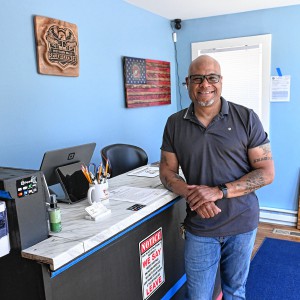 Retired police officer, veteran opens firearms training academy in Millers Falls
Retired police officer, veteran opens firearms training academy in Millers Falls
 Deerfield’s Tilton Library expansion ‘takes a village’
Deerfield’s Tilton Library expansion ‘takes a village’
 Big turnout expected Sunday for 14th annual WMass Mother’s Day Half Marathon in Whately
Big turnout expected Sunday for 14th annual WMass Mother’s Day Half Marathon in Whately
 High Schools: Big sixth inning propels Franklin Tech past Smith Vocational (PHOTOS)
High Schools: Big sixth inning propels Franklin Tech past Smith Vocational (PHOTOS)
While life took her to the Pacific Northwest, her work continued and she eventually came up with a lead: her birth mother’s name. Upon writing a letter to her mother, who lived in St. Paul, Minnesota, Hentz found out that her mom wanted nothing to do with her, but was able to provide her birth father’s name.
Hentz was soon on her way to Illinois to visit her birth father and reconnect with him when she was 38 years old. He then provided her with some information about her grandparents, which then allowed her to dig further into her family’s lineage and she determined she descends from the Shawnee and Anishinaabe tribes.
Her father soon passed away, but Hentz said reconnecting with her birth father – a process called “reunion” — is oftentimes a rarity for Native American adoptees.
“I’ve got it pretty good compared to other adoptions. I’m in reunion, and that’s about the best place you can be … When you don’t know anything about your identity, it’s paralyzing,” she said. “I’m a lost bird and I’m part of the stolen generations. I never should have been adopted.”
Throughout her activism and participation in regional Indigenous events, Hentz said she has met numerous adoptees and she is hoping to connect with more through The COUNT.
Those interested in contacting Hentz should visit The COUNT’s website to request a survey form, in which answers will be confidential information, as she tries to help people connect with their families and maybe one day organize a class action lawsuit against the federal government for its funding of programs that separated Native American children from their families — similar to the “Sixties Scoop” that occurred in Canada.
“That would be a fantastic thing to come out of the COUNT,” Hentz said. “We never received an apology from the government for running these programs.”
The website can be accessed at this link: bit.ly/47r5F83.
Chris Larabee can be reached at clarabee@recorder.com or 413-930-4081.

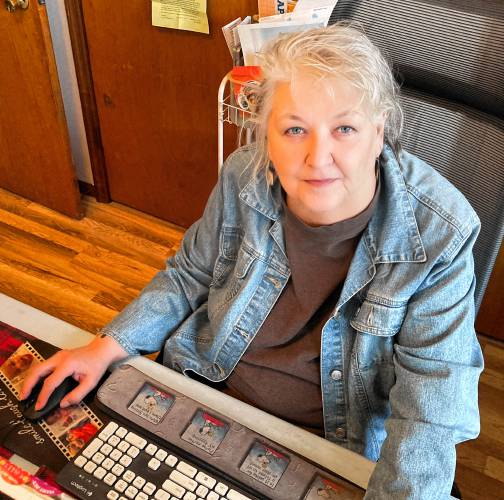

 Speaking of Nature: Indulging in eye candy: Finally, after such a long wait, it’s beginning to look like spring is here
Speaking of Nature: Indulging in eye candy: Finally, after such a long wait, it’s beginning to look like spring is here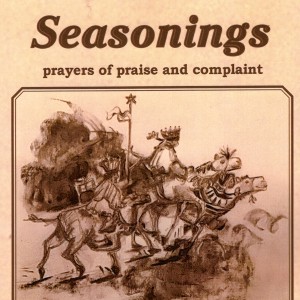 Celebrating ‘Seasonings’: New book by veteran preacher and poet, Allen ‘Mick’ Comstock
Celebrating ‘Seasonings’: New book by veteran preacher and poet, Allen ‘Mick’ Comstock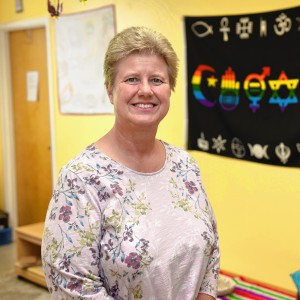 Faith Matters: How to still the muddy waters of overthinking: Clarity, peace and God can be found in the quiet spaces
Faith Matters: How to still the muddy waters of overthinking: Clarity, peace and God can be found in the quiet spaces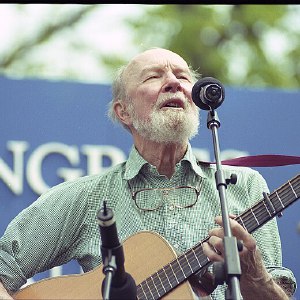 A time for every purpose under heaven: Free sing-a-long Pete Seeger Fest returns to Ashfield, April 6
A time for every purpose under heaven: Free sing-a-long Pete Seeger Fest returns to Ashfield, April 6
